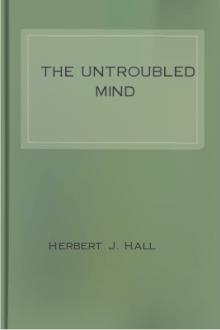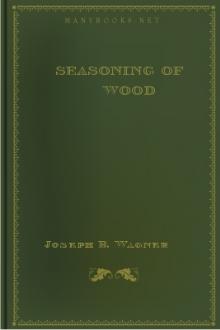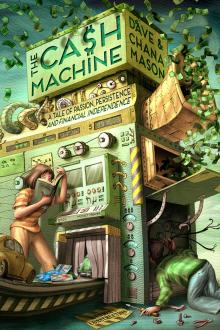Genre Literary Collections. Page - 8

could know more clearly the joy of such a conception, we should dry up at its source much of the unhappiness which is, in a deep and subtle way, at the bottom of many a nervous illness and many a wretched existence.
The happiness which is found in the recognition of kinship with God, through the common things of life, in the experiences which are so significant that they could not spring from a lesser source, the happiness which is not sought, but which is the inevitable result of such recognition--this experience goes a long way toward making life worth living.
If we do have this conception of life, then some of the old, old questions that have vexed so many dwellers upon the earth will no longer be a source of unhappiness or of illness of mind or body. The question of immortality, for instance, which has made us afraid to die, will no longer be a question--we shall not need to answer it, in the presence of God, in our lives and in the world about us. We shall be content finally to accept what

inctive and inexplicable elements: a power deeper and more marvellous in its inscrutable ramifications than human consciousness. 'What on earth,' we say, 'could So-and-so see in So-and-so to fall in love with?' This very inexplicability I take to be the sign and seal of a profound importance. An instinct so conditioned, so curious, so vague, so unfathomable, as we may guess by analogy with all other instincts, must be Nature's guiding voice within us, speaking for the good of the human race in all future generations.
On the other hand, let us suppose for a moment (impossible supposition!) that mankind could conceivably divest itself of 'these foolish ideas about love and the tastes of young people,' and could hand over the choice of partners for life to a committee of anthropologists, presided over by Sir George Campbell. Would the committee manage things, I wonder, very much better than the Creator has managed them? Where would they obtain that intimate knowledge of individual structures and functions

upon entirely. Furthermore, structure underlies nearly all the technical properties of this important product, and furnishes an explanation why one piece differs in these properties from another. Structure explains why oak is heavier, stronger, and tougher than pine; why it is harder to saw and plane, and why it is so much more difficult to season without injury. From its less porous structure alone it is evident that a piece of young and thrifty oak is stronger than the porous wood of an old or stunted tree, or that a Georgia or long-leaf pine excels white pine in weight and strength.
Keeping especially in mind the arrangement and direction of the fibres of wood, it is clear at once why knots and "cross-grain" interfere with the strength of timber. It is due to the structural peculiarities that "honeycombing" occurs in rapid seasoning, that checks or cracks extend radially and follow pith rays, that tangent or "bastard" cut stock shrinks and warps more than that which is quarter-sawn. These same pecu

I do not know, but it must be bad indeed if it inculcates more falsities than are at present foisted upon the young in the name of the Church.
I make these remarks simply in the interests of fair play. Far be it from me to suggest that it is desirable that the inculcation of the doctrine of evolution should be made a prominent feature of general education. I agree with Professor Virchow so far, but for very different reasons. It is not that I think the evidence of that doctrine insufficient, but that I doubt whether it is the business of a teacher to plunge the young mind into difficult problems concerning the origin of the existing condition of things. I am disposed to think that the brief period of school-life would be better spent in obtaining an acquaintance with nature, as it is; in fact, in laying a firm foundation for the further knowledge Which is needed for the critical examination of the dogmas, whether scientific or anti-scientific, which are presented to the adult mind. At present, educati

ine finally recovered, but he was shockingly disfigured for life. He afterwards told how he came upon the tracks of Broadus, and on reaching the spot where Broadus had received his death wound, he was suddenly attacked by a huge she-bear that was followed by two small cubs. The bear had evidently been severely wounded by Broadus and was in a terrible rage. She seized Jabine before he could turn to flee, and falling with her whole weight upon his body and chest, began biting his face. He soon lost consciousness from the pressure upon his chest, and remembered no more.
The poor fellow became a misanthrope, owing to his terrible disfigurement, and was finally found drowned in the river near Coloma.
In 1850 a number of miners were camped upon the spot where the little town of Todd's Valley now stands. Among them were three brothers named Gaylord, who had just arrived from Illinois. These young men used to help out the proceeds of their claim by an occasional hunt, taking their venison down to the ri

to the light, which are so general throughout the vegetable kingdom, and occasionally from the light, or transversely with respect to it, are all modified
* See Mr. Vines' excellent discussion ('Arbeiten des Bot. Instituts in Würzburg,' B. II. pp. 142, 143, 1878) on this intricate subject. Hofmeister's observations ('Jahreschrifte des Vereins für Vaterl. Naturkunde in Würtemberg,' 1874, p. 211) on the curious movements of Spirogyra, a plant consisting of a single row of cells, are valuable in relation to this subject.
[page 4] forms of circumnutation; as again are the equally prevalent movements of stems, etc., towards the zenith, and of roots towards the centre of the earth. In accordance with these conclusions, a considerable difficulty in the way of evolution is in part removed, for it might have been asked, how did all these diversified movements for the most different purposes first arise? As the case stands, we know that there is always movement in progress, and its amplitud

ould say that John M. Neal was possibly hung for murder, not through design, but through traditional ignorance of the power of nature to cure both old and young, by skillfully adjusting the engines of life so as to bring forth pure and healthy blood, the greatest known germicide, to one capable to reason who has the skill to conduct the vitalizing and protecting fluids to throat, lungs and all parts of the system, and ward off diseases as nature's God has indicated. With this faith and method of reasoning, I began to treat diseases by Osteopathy as an experimenter, and notwithstanding I obtained good results in all cases in diseases of climate and contagions, I hesitated for years to proclaim to the world that there was but little excuse for a master engineer to lose a child in cases of diphtheria, croup, measles, mumps, whooping cough, flux and other forms of summer diseases, peculiar to children. Neither was it necessary for the adult to die with diseases of summer, fall and winter. But at last I took my st

perhaps, but littleenlightening, for they can have little bearing upon our conception ofwhat we ought to do.
A presumption against this arbitrary assumption that we have the one andonly desirable code is suggested the unthinking acceptance of thetraditional by those who are lacking in enlightenment and in the capacityreflection. Is it not significant that a contact with new ways ofthinking has a tendency, at least, to make men broaden their horizon andto revise some of their views?
In other fields, we hope to attain to a capacity for self-criticism. Weexpect to learn from other men. Why should we, in the sphere of morals,lay claim to the possession of the truth, the whole truth, and nothingbut the truth? Why should we refuse to learn from anyone? Such a positionseems unreasoning. It puts moral judgments beyond the pale of argumentand intelligent discussion. It is an assumption of infallibility littlein harmony with the spirit of science. The fact that a given standard ofconduct is in harmo

